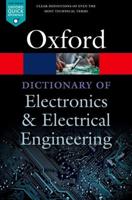Publisher's Synopsis
This set consists of two volumes, which present an analysis of the existing surveys in the literature of batteries, chargers, control systems, battery management systems, plugs, sockets, drives and fuel cell based and plug in smart electric and hybrid vehicles, and discusses the recent developments, future outlook, advanced and analytical modeling techniques of smart electric and hybrid vehicles. Volume 1 provides detailed comparative analysis of parameters of intelligent electric and hybrid vehicles with conventional vehicles and depth in knowledge of power electronics tools in smart electric and hybrid vehicles. It also compiles the research work and findings in advancements of smart electric and hybrid vehicles from automobile, mechanical, electronic, electrical, computer science and allied engineering domains and explains how smart electric and hybrid vehicles can be utilized for harmful emissions over the entire life cycle of vehicle and how reliance on fossil fuels can be cut down. Volume 2 discusses the integration of newer developments like digital twin, artificial intelligence, Nature inspired algorithms, Internet of Things, role of Industry 4.0 in advancements in vehicle engineering. It compiles overall aspects of advancements in smart electric and hybrid vehicles by bringing the latest research and development by comprehensive range of mathematical, numerical and simulation modeling, and management techniques to strengthen the engineering science and technological developments for future.
This volume set:
- Discusses different types of lightweight and robust materials for the fabrication of smart electric and hybrid vehicles and presents computational models, emerging technologies, numerical techniques, and environmental and economic benefits applicable to electric vehicles.
- Showcases a detailed comparative analysis of parameters of intelligent electric and hybrid vehicles with conventional vehicles explains diagnostics, prognostics, reliability, and durability issues in smart electric and hybrid vehicles.
- Focuses on contemporary aspects of smart electric and hybrid vehicles techniques for new means and models for green environment and discusses the role of artificial intelligence, machine learning, and machine vision tools in smart electric and hybrid vehicles and presents design and analysis of charging stations and their sustainability roadmap for smart electric vehicles.
- Highlights the applications of smart and hybrid vehicles in diverse sectors including aerospace, agriculture, defence, and medical and the cyber and functional security of intelligent and hybrid vehicles.
- Covers electromechanical drives, storage systems, wireless charging, and component design for smart electric and hybrid vehicles, internet of things-based battery and charging management approach and effect of voltage drop in charging capacity of smart electric vehicles.
It is primarily written for senior undergraduate, graduate students, and academic researchers in the fields of electrical engineering, electronics and communication engineering, computer engineering, and automotive engineering.









